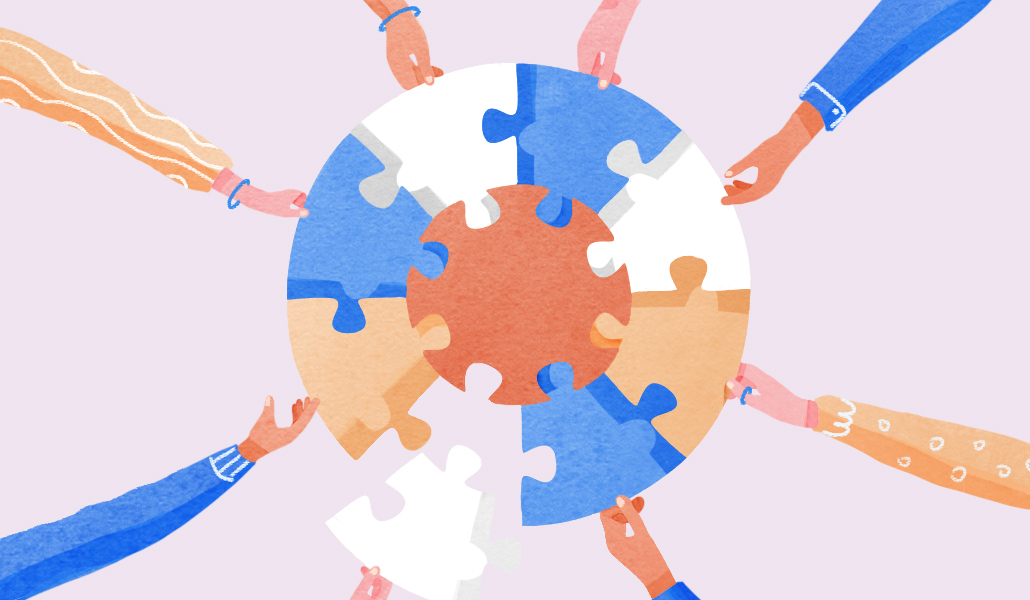How workplace friendships can be your secret weapon to success

People seem to be struggling to make friends more than they used to, and that can have repercussions on work culture and employee happiness.
New data from the Pew Research Center on the state of friendship in the U.S. found that 8% of people have no close friends and only 38% say they have five or more close friends. The percentage of people who have five or more close friends drops as you go down the age range. Only 32% of those younger than 30 years old have five or more close friends, that’s compared to 49% for adults over 65 years old.
It’s a reminder of why it’s important to think about what it means to maintain friendships while also working your 9 to 5. And in some cases, it might mean forging more friendships with colleagues – whether it’s in-office or virtually.
Experts say that workplace friendships can be a secret weapon to success in the workplace and shouldn’t be shied away from.
Ulrika Lillja and Claudia Gård are huge advocates that friendships in the workplace can be extremely valuable. The duo are co-founders, but friends first. They believe that there is a need, now more than ever, for people to connect platonically at work as it can not only help the loneliness epidemic but also contribute to a positive working environment and boost employee morale.
“Having friends at work makes it more fun,” said Gård. “If you’re having more fun at work, you’re more productive. We get more done and it reduces stress. If you have a good work environment and connect well with others, people want to stay at the company.”
Lillja and Gård were both looking for like-minded people who were entrepreneurs when they connected. Lillja had moved back home from San Francisco and missed the environment there and saw Gård’s post on Facebook looking to connect with other hardworking women. Together they built GoFrendly, an app where women in specific fields can connect on a personal and professional level.
“Large corporations have reached out to us because they want to find a platform where their female employees can connect because it’s not always happening naturally in the workplace,” said Lillja. “Workplaces see the importance of building friendships for work culture.”
The value and importance of workplace friendships first began to be tested when hybrid and remote working became normalized, with many fearing that worker happiness and therefore productivity would take a hit if people weren’t given the chance to forge friendships while physically together in the same office.
Meanwhile, some employers that have been caught up in relationship-related scandals have started to lay down stricter policies when it comes to connecting with people at work. For example, ITV – the biggest commercial broadcaster in the U.K. – last month set down strict new rules requiring staff to declare all relationships with colleagues, including friendships. The update is understood to have been in direct response to the scrutiny the broadcaster received from the government about its culture, following the resignation of high-profile show presenter Philip Schofield, after news that he’d had an affair with a junior staff member, while married for 30 years, emerged.
While disclosing romantic relationships at work is often standard practice among companies, ITV’s decision highlights a trend towards full corporate transparency to avoid conflicts of interest. But ITV staff reportedly called the move a “step too far”, reflecting that workplace friendships are cherished and highly valued by workers. According to a Gallup report, workplace friendships boost job satisfaction and engagement for U.K. workers, and one in seven Brits believe their work confidante understands them better than their significant other.
Having best friends at work directly correlates with employee engagement and success, according to the same Gallup report. It can spur people to want to go to work, provide support when things aren’t always going to plan, and also have a direct impact on employee retention, productivity, and company culture.
And in some cases, that friend might be a mentor too. That combination is what future of work expert Danielle Farage calls “friend-torships.” A mentor in the workplace is someone who can be your friend too, which might help build an even deeper relationship.
“The founding principles of friend-torships are really about giving,” said Farage. “It’s about having the confidence within yourself to say I could give something valuable to this person, whether it’s knowledge, advice, feedback, or quality time. And then the second principle is receiving – what am I willing to admit that I don’t know? Open yourself up to this form of authentic curiosity.”
Age or experience aren’t necessarily factors in this dynamic, it’s a matter of navigating together what you’re looking to learn and give. And you don’t need to just have one friend-torship either. In a lot of cases, someone might have multiple friend-torships to create a group of people they can trust and help you guide decisions about work, and even beyond.
“It could be about mental health, relationships, career,” said Farage. “The more you grow your network, the more you invest in being curious about who people are, and not just what they do.”
And that’s what happened in Lillja and Gård’s case. People ask them all the time: are you two best friends now?
“I don’t have this relationship with any of my other friends,” said Gård. “They haven’t been through the things we’ve been through. We give each other the room and space to trust each other. It’s a different kind of friendship that’s hard to label.”
Whether or not people end up as best friends, it’s clear that friendships at work create happier, more productive workforces.
“Fostering friendships is beneficial to keep employees,” said Lillja. “It’s not all about money and getting paid, especially for the younger generations. If companies aren’t helping with that part, they’re going to lose talent to others.”

